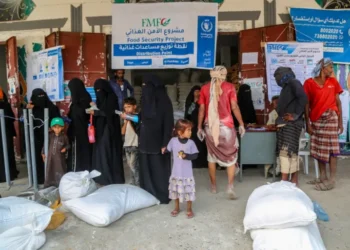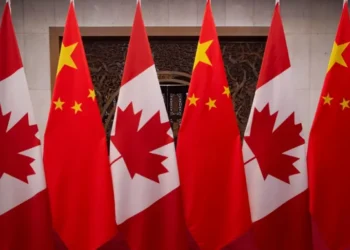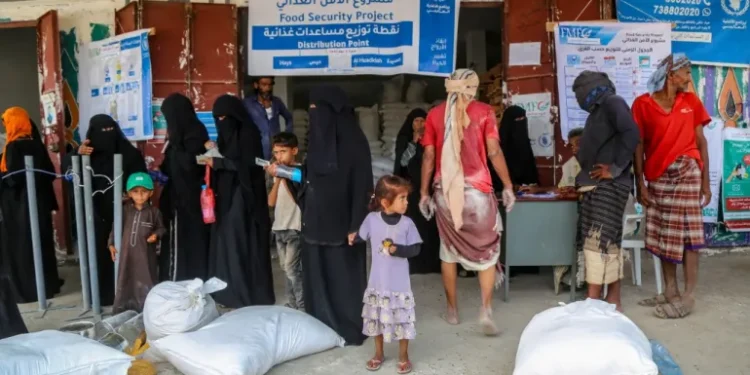Undoubtedly, the overused phrase by Western nations since the onset of the ongoing Israel-Hamas war is “Israel’s right to self-defence.”
These countries have asserted time and again that Israel has to defend itself against Hamas.
On Saturday, April 13, Iran launched its first ever direct attack on Israeli territory, at Israel in retaliation for a deadly Israeli strike on the Iranian consulate in Damascus, Syria, that took place on April 1, 2024.
Having completed its retaliation, Iran declared that the matter can “be deemed concluded.”
However, fears concerning Israeli strikes against Iran have heightened as Israel is not usually one to let anyone else have the last word.
Israel has called for fresh sanctions on Iran at a meeting of the UN security council.
Israel’s UN envoy, Gilad Erdan, urged the council to “impose all possible sanctions on Iran before it’s too late” and “condemn Iran for their terror.”
Particularly, he referred to the “snapback” mechanism that allows members of the 2015 Iran nuclear deal – which the United States exited in 2018 – to reimpose international sanctions against Tehran.
In response, Iran’s UN envoy, Amir Saeid Iravani, stated that the Islamic republic was exercising its “inherent right to self-defence” and “had no choice” but to act.
He insisted his country did “not seek escalation or war”, but would respond to any “threat or aggression”.
He also lashed out at Israel.
“It is time for the security council to shoulder its responsibility and address the real threat to international peace and security,” Iravani said.
He added that the body “must take urgent and punitive measures to compel this regime to stop a genocide against the people of Gaza.”
The Iranian envoy’s remarks emphasize the universality of the concept of self-defense, asserting that it should not be restricted or monopolized by a single nation, that is Israel.
All nations have the inherent right to defend themselves against external threats and aggression. This principle is enshrined in international law, including Article 51 of the United Nations Charter, which recognizes the inherent right of individual or collective self-defense in the event of an armed attack.
As such, Iran can rightfully say that it did what it did as a self-defense mechanism.
The right to self-defense is not limited to Israel alone.
Calls For Restraint
Fearing an escalation in the wake of Iran’s attacks on Israel, the UN Secretary-General called for restraint.
“Neither the region nor the world can afford more war,” Antonio Guterres told the body’s Security Council as it met to discuss the Iranian attack.
“The Middle East is on the brink,” he warned.
“The people of the region are confronting a real danger of a devastating full-scale conflict. Now is the time to defuse and de-escalate.”
Antonio Guterres
The display of military power by Israel and Iran has left the world terrified of what another regional war could do to an already devastated region.
If it is to take place, there will be not just regional, but global repercussions. Any regional Iranian-Israeli conflict is certain to pull in the Gulf countries, but also the US, Russia and China, creating a potentially explosive global confrontation.
The international community has to act.
The United Nations Security Council must pass a strong binding resolution imposing a full ceasefire in the region that includes the occupied Palestinian territories, Israel, Iran and all neighboring countries involved, as well as non-state actors.
The resolution must have clear measures to be undertaken in case of violation so that Israel cannot ignore it.
A new resolution, therefore, will require the use of Chapter VII of the UN Charter.
Article 41 of this chapter reads: “The Security Council may decide what measures not involving the use of armed force are to be employed to give effect to its decisions, and it may call upon the Members of the United Nations to apply such measures. These may include complete or partial interruption of economic relations and of rail, sea, air, postal, telegraphic, radio, and other means of communication, and the severance of diplomatic relations.”
The possibility of imposing biting sanctions and a diplomatic boycott on those who do not abide by its provisions must be made clear in the resolution.
READ ALSO: G-20 Nations Uneasy Despite World Economy’s Great Escape























